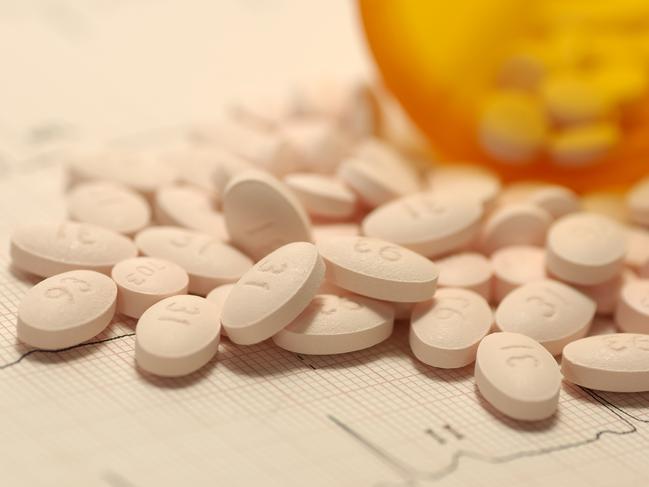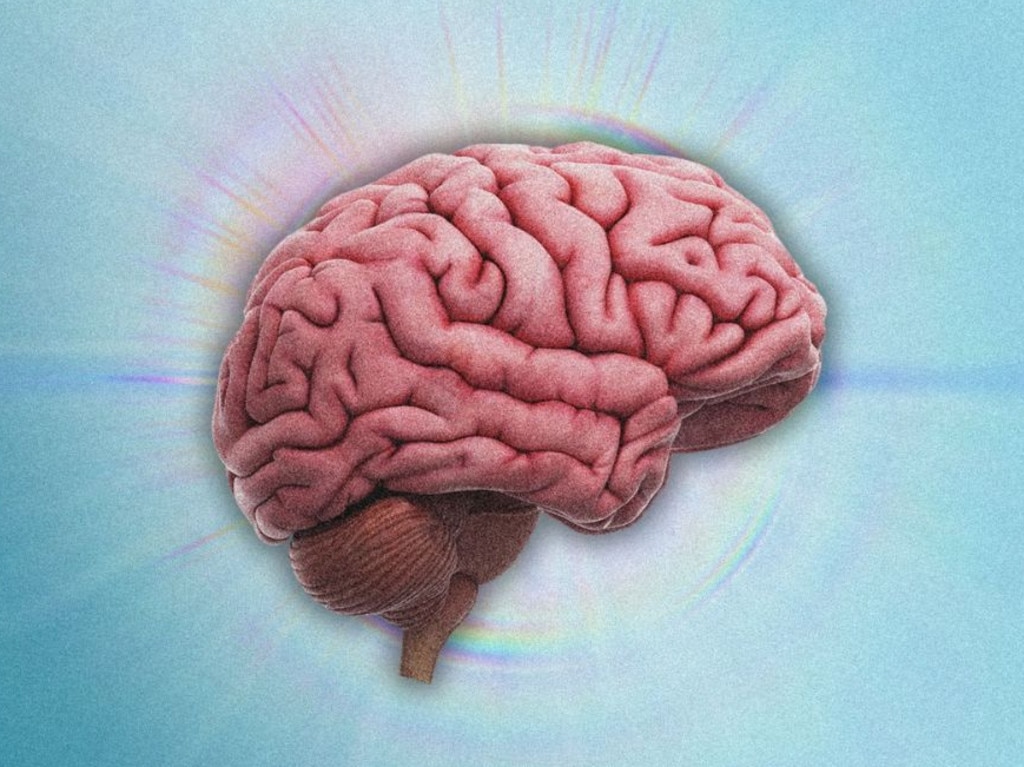How statins might have spared my mother from dementia
A pill taken by millions in midlife for heart health could also protect the brain, a new study has found.

Alzheimer’s disease and other dementias “don’t just suddenly descend on us when we are old”, says James Rowe, professor of cognitive neurology at the University of Cambridge. They develop slowly, hidden, over decades.
How slowly? How many decades? “From our teenage years upwards,” he explains. This slow, deadly creep speaks to the insidious nature of the disease. Which speaks in turn to opportunity. The more we know about what causes dementia, the more we can understand how we might protect ourselves.
A study published last week suggests that statins might be the latest to join the arsenal against Alzheimer’s.
It’s a tablet millions of people pop daily, my husband among them. My mother, who died of dementia, also took statins — but only after having had a stroke in her 70s. Is it possible that had she taken them earlier in her life, she would have been spared from the development of this cruel disease?
The story of statins starts with a German pathologist, Rudolf Virchow. In the mid-19th century Virchow discovered that cholesterol was deposited in the artery walls of people who died of myocardial infarction — or heart attack — caused by vascular blockage.
About a hundred years later, in 1913, a Russian pathologist this time — Nikolai Anitschkow — demonstrated cholesterol’s role in the development of atherosclerosis, where your arteries narrow, making it difficult for blood to flow well. Astonishing as it seems now, physicians were sceptical of Anitschkow’s findings. Astonishing because now everybody knows cholesterol build-up in the arteries is bad for your heart.
And what’s bad for your heart is bad for your head — your brain. Say it after me, because increasingly this is the mantra of doctors on dementia: what’s good for your heart is good for your head, which would explain a significant number of the modifiable risk factors on the Lancet’s list — hypertension, obesity, smoking, physical inactivity … We all know those are bad for our hearts.

OK, so we understand why cholesterol presents as a cardiovascular problem — where do statins come in? Enter Akira Endo, who was born on a farm in Tokyo and learnt about local fungi from his grandfather. As a child Endo had been fascinated by Alexander Fleming’s discovery of penicillin.
Then, in the mid-1970s, by then a young biochemist, Endo made a discovery that would change the face of cardiovascular medicine for ever. Screening hundreds of fungal species made into broths, he identified something called Penicillium citrinum, which he learnt was a powerful inhibitor of the enzyme used by the body to make cholesterol, and so the first statin — compactin — was born.
Since then there has been a 30 per cent decrease in deaths from heart attacks, thanks largely to these wonder drugs. Today, statins are the main lipid (fat) lowering drugs used to reduce LDL cholesterol, or “bad cholesterol”, which has been described as “a tormentor of the heart”; in excess in the blood it infiltrates the walls of the arteries and forms fatty plaques. Over time these interrupt blood flow and can induce a heart attack or stroke.
My mother, who died of dementia, also took statins — but only after having had a stroke in her 70s. Is it possible that had she taken them earlier in her life, she would have been spared from the development of this cruel disease?
However, according to the neurologist professor Sara Garcia Ptacek at the Karolinska University Hospital in Sweden, they’re clever drugs, statins, because, like many medications, they do more than their main mechanism of action. They are neuroprotective as well as cardio-protective in different ways.
“Cholesterol metabolites cross into the brain and participate in different processes,” Garcia Ptacek explains. “So, of course, altering the cholesterol in the body also affects brain cholesterol.” Some statins are smaller and more likely to penetrate and act directly in the brain. One of the most frequently used and oldest statins, simvastatin, has these properties.
According to the British Heart Foundation, an estimated 7 million to 8 million adults in the UK are on statins, with simvastatin being among the most commonly prescribed.
The idea that statins could be neuroprotective, Garcia Ptacek tells me, is not new. “In longitudinal cohort studies they are associated with reduced dementia risk,” even if previously some clinical trials presented negative results. Why? “It’s possible,” she says, “that these trials were underpowered, or included the wrong patients.”
The results of a large study published this week seem to endorse the positive association between statins and better brain health.

A team at Hallym University College of Medicine in Korea found that LDL cholesterol levels below 1.8mmol/L (blood cholesterol is measured in units called millimoles per litre of blood, mmol/L) are optimal for brain health. For optimal read: levels below that were associated with a 26 per cent reduction in all-cause dementia risk (and a 28 per cent reduced risk in the case of Alzheimer’s specifically).
LDL cholesterol isn’t just bad for our brains because it predisposes us to those heart/head risks (heart attack, stroke etc), it also blocks blood vessels in the brain, which means it’s not as well supplied with blood as it should. This can cause cognitive impairment because the compromised brain blood flow can lead to a reduction in white matter.
LDL cholesterol may also drive the characteristic pathology of Alzheimer’s disease, the formation of amyloid plaques. It is also believed to have an inflammatory effect on the brain — brains don’t like inflammation — because LDL particles don’t cross the blood-brain barrier.
Gill Livingston, the author of the Lancet’s Dementia Prevention, Intervention and Care Commission, says: “These findings are consistent with the latest Lancet commission on dementia, where we calculated that high LDL was a risk factor for dementia, accounting for 7 per cent of all dementia. We suggested a reduction below 1.8.
“We reported on a Cochrane review finding that sustained statin use in midlife protected from excess risk … [and] the Olmastroni et al 2022 meta-analysis of 36 studies found the same.” Though she adds that simply starting on statins is not enough, you have to keep taking them.
“We recommended its treatment to reduce the risk of dementia. High cholesterol is common in midlife and statins are cheap and effective to reduce it. It’s good to see further consistent findings in a different population, adding to this important message.”
Typically we associate statin use with midlife; 59 per cent of 55 to 64-year-olds have high LDL levels. But given Rowe’s words, maybe that’s not early enough: the American Heart Association recommends that adults have their cholesterol checked every four to six years, starting at 20 — which would suggest the risk presents much earlier than midriff-spreading midlife? It does. According to the British Heart Foundation, 29 per cent of 25 to 34-year-olds have high LDL.
I have sat complacently on my cholesterol readings for years, slim, only just into the high-risk age group. “Are you a professional athlete?” the doctor asked me, much to my husband’s amusement. No, but I go to the gym regularly, I said smugly. “Well, your good cholesterol level — HDL — is good, and your LDL is nice and low: 1.9mmol/L.” Not low enough, it turns out.
The findings of the research team at Hallym University College of Medicine “support the necessity of targeted lipid management as a preventive strategy against dementia”. Especially when you know — as Rowe tells me — that “the amount of pathology starts to accelerate in midlife, and eventually breaks cover, overwhelming the brain’s ability to compensate”.
Statins certainly aren’t — as one doctor tells me — “the magic bullet for preventing dementia”, but there is an opportunity here for them to be added to the armoury against it.
The Times




To join the conversation, please log in. Don't have an account? Register
Join the conversation, you are commenting as Logout